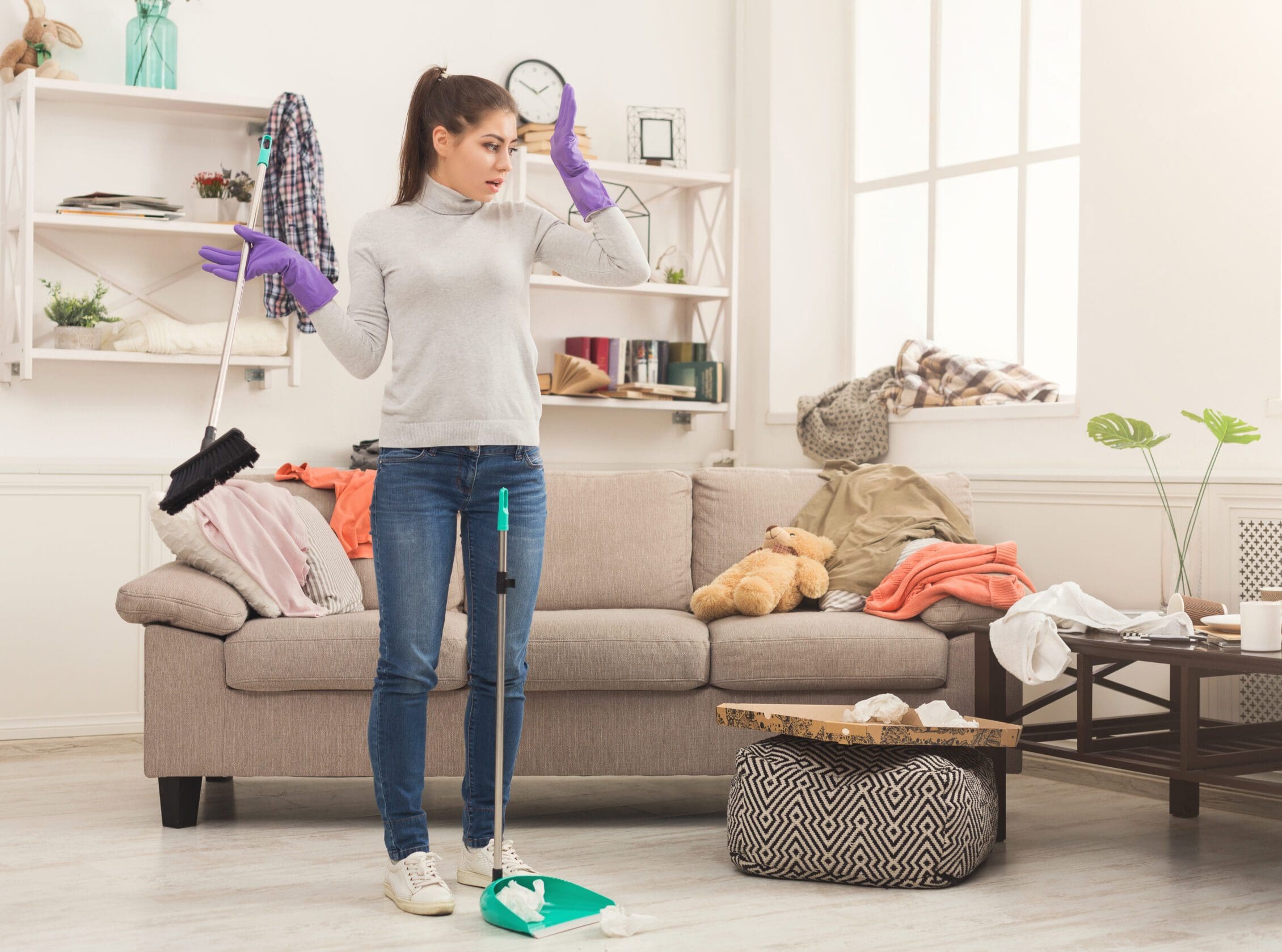Swedish death cleaning, not to be confused with Swedish death metal, has gained popularity in the U.S. as television, magazines, and online forums celebrate the decluttering technique.
The principle is simple: by decluttering the home, people can appreciate the memories uncovered, make decisions about where everything will go, and save family members from doing the task for them after they pass.
While it may sound morbid to essentially prepare your home for your death, decluttering–for people of any age, and for any reason–can have a number of physical and mental health benefits.
The Physical Health Benefits of Decluttering
As we grow older, there are practical benefits to paring down our stuff. Take a look in your kitchen cupboards. Are they so full that you have to remove several items in order to access the item you need? What about your bedroom closet? Are the clothes stuffed so tightly on the rack that it takes some real muscle to slide them aside and pull out the shirt you were looking for?
These are some good signals that you probably have more than you need–and that clearing out those spaces will make daily chores much more pleasant. If you have mobility issues, decluttering will make it easier to move around your home–and to access the things you need.
Another practical side effect of decluttering is that it reduces the dust, mold, and mildew in the home, thus lowering the risk of allergies, asthma, and other respiratory complications.
According to sleep.com, studies show that decluttering your bedroom also leads to better sleep. Perhaps contrary to what you might think, adults age 65 and older need just as much sleep as younger adults. They may not get that sleep, however, because of age-related complications. For example, older adults have a harder time metabolizing alcohol, caffeine, and nicotine, all of which can compromise sleep. Medications may interfere with sleep, as well as lack of physical activity.
If decluttering can help you or your loved one sleep better, why not give it a try?
The Mental Health Benefits of Decluttering
In addition to clearing the air and making life easier, decluttering can have some powerful mental health benefits. Pulling out things that have been in storage a long time can become a path down memory lane. If you’re working through the cleaning process with someone you love, this can be a time to remember and talk about stories and people from the past. You can start to evaluate what still matters and what you’re ready to let go.
As you let go of the objects that connect you to your past, you might feel a sense of lightness and freedom. What you have accumulated does not define you, and letting things go–whether to the trash or recycling bin, to a charity, or to a family member or friend–will help bring your focus to the present. Who are you now? What makes you happy in this moment?
Decluttering can raise self-esteem and improve your mood. You’ll realize that experiences and relationships matter more than material possessions when it comes to giving life meaning.
Some Simple Decluttering Tips
Rather than looking at the decluttering process as a tedious chore, try to see it as a meaningful and exciting path toward freedom. Start small, and stop working when you start to feel overwhelmed physically or emotionally. If you’re afraid to get rid of certain things, set them aside to look at again later.
As you begin to reflect on which memories matter most to you, you can create little displays made up of a few select items. After all, if something is truly important to you, why shove it into storage? Bring everything into the light, then choose specific items that you want to access regularly. Let the rest go.
For example, if you have boxes full of old concert t-shirts, consider choosing your favorites and then making them into a quilt that you can hang on a wall or drape over a bed. If you have hundreds of photographs stuffed in the back of a closet, organize your favorites into photo albums and throw out the rest. A general rule: if you haven’t looked at or used something in the last two years, it’s probably safe to get rid of it.
A Word of Caution Re Hoarding
If you want to help a loved one declutter their home, get their permission first. If someone has hoarding tendencies, they likely have emotional and psychological ties to their possessions that an outsider would not understand. Bullying them into cleaning up–or throwing out their things without their permission–can trigger a major mental health crisis. The website mind.org offers a helpful discussion of how to work with a loved one who hoards.
Here at Raleigh Oaks in Garner, NC, we pride ourselves on our compassionate care for those with mental health issues. If you or someone you love is in need of support for emotional illness or psychiatric disorders, we can help.






